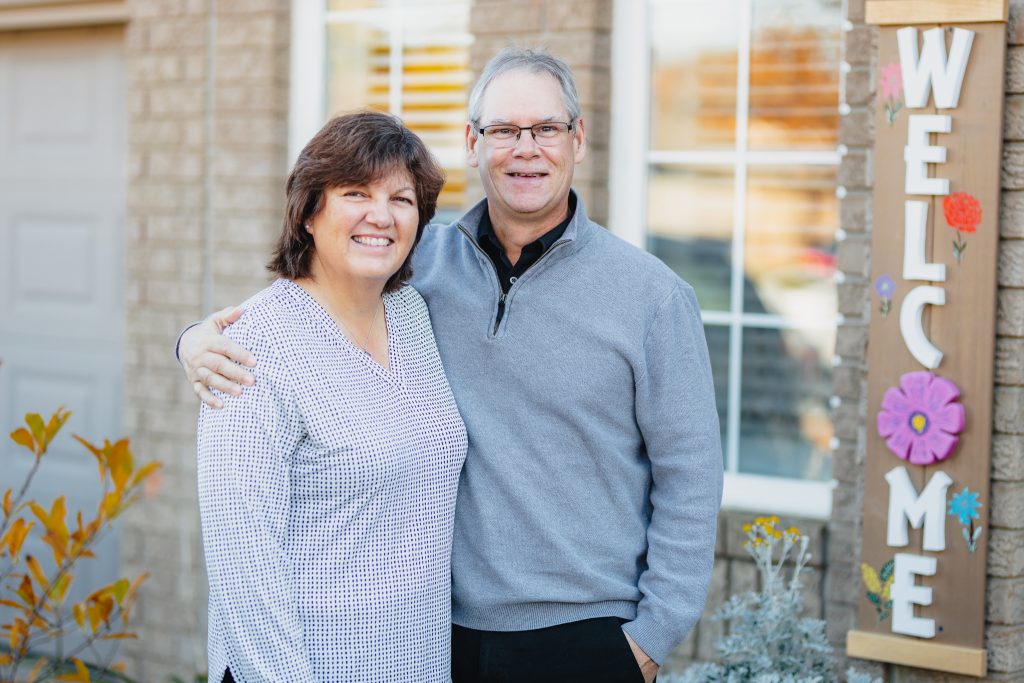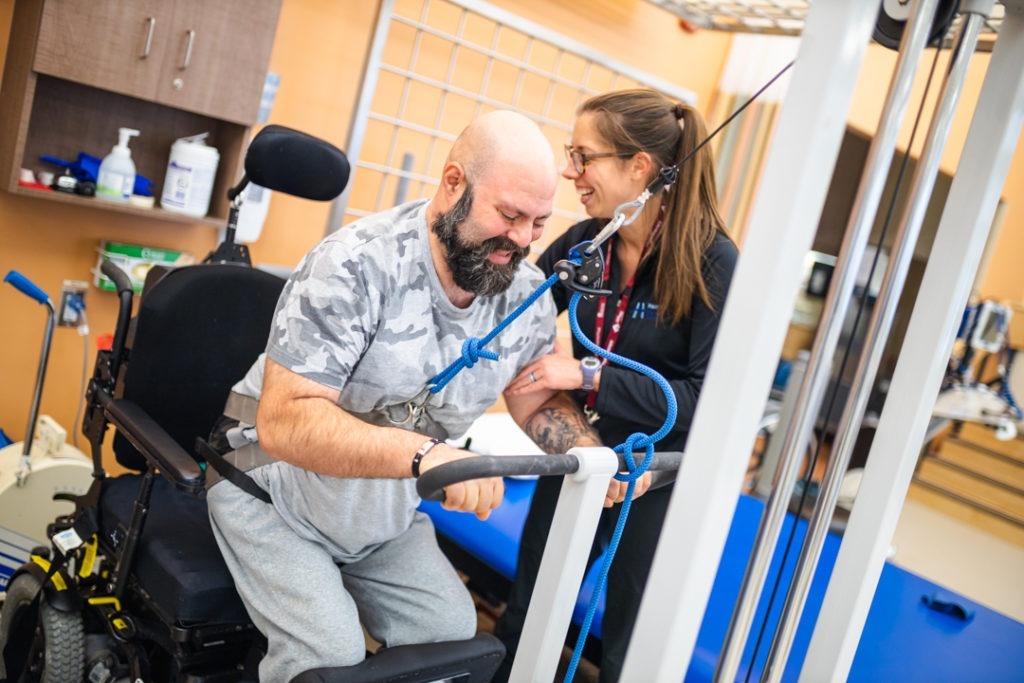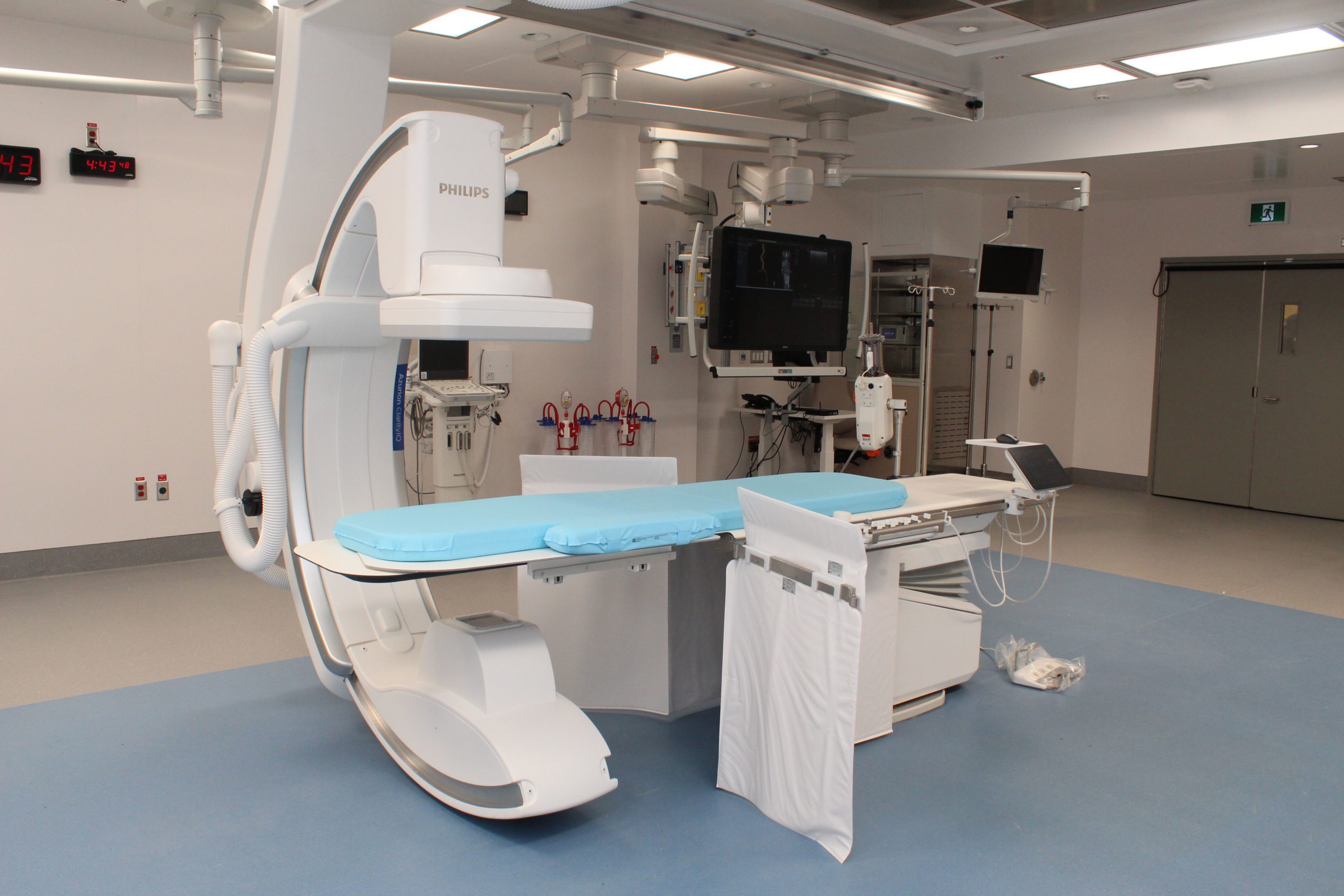
HHS heart patient shares many reasons to be grateful
Hamilton Health Sciences (HHS) patient John Fennell feels nothing but gratitude:
- Gratitude for the team of HHS doctors, nurses and healthcare professionals who cared for him, including his surgeon
- Gratitude for the rapid response of paramedics
- And gratitude for his family – especially his wife Gail who supported him while he recovered at home from lifesaving heart surgery
Tweeting gratitude
@HamHealthSci One year ago today,
Dr. Richard Whitlock (and a host of
people on his team) saved my life. I
had an Aortic Dissection. All of my
other doctors since then have told me
that 1) He’s the best there is and
2) I’m really lucky to have survived.
Thank you SO MUCH!
“I posted that message on Oct. 14 – one year after the team at HHS saved my life,” says Fennell, 59, of Stoney Creek who has since recovered and is back to work as a product consultant for a software company.
“It was like a sledge hammer hit me in the middle of my chest.”
The day before Fennell sent this thank-you message, he received a clean bill of health from his cardiologist.
Lifesaving response
Fennell was working from home on Oct. 14, 2020 when he felt sudden and intense pain. “It was like a sledge hammer hit me in the middle of my chest,” says Fennell, who called 911. “An ambulance arrived in just six minutes.”
He was taken to the HHS Juravinski Hospital and Cancer Centre’s (JHCC) emergency department for assessment, where tests showed he had an aortic dissection. The aorta is the body’s main blood vessel. Its wall is made up of three layers. An aortic dissection happens when the aorta’s inner layer tears, allowing blood to rush through and split the inner and middle layers. It’s an extremely serious and potentially fatal event.
“It’s a complex surgery”
He doesn’t know what caused it, but suspects it may be hereditary. From the JHCC he was taken by ambulance to HHS Hamilton General Hospital (HGH) — the region’s dedicated cardiac centre — where he underwent emergency surgery to repair the tear.
HHS’ cardiac and vascular program provides advanced care for patients from across central and southern Ontario. It specializes in the diagnosis, treatment and care of people with conditions relating to the heart and the body’s vessels. It’s also home to one of Ontario’s largest heart surgery centres.
This type of complex aorta surgery can take between five and 10 hours, says Dr. Richard Whitlock. “I’ve done one that took 16 hours, so it can be very long depending on the case.”
At home recovering, Fennell experienced side effects including fluid build-up around the heart caused by inflammation. He returned to HGH for a second, smaller procedure to drain the fluid.
“The entire care team – from the time I entered hospital both times until the time I left – was fantastic,” says Fennell. “I’m sure for them it’s just a typical day at work but from my standpoint it was incredible to see them in action and experience this high level of care. I want Dr. Whitlock and everyone who cared for me at the JHCC and HGH to know that they’ve made a huge impact on my life.”
Saving more and more lives
Innovations in cardiovascular surgery are saving more and more people with aortic dissections.
“We’ll follow these patients in a multidisciplinary way.”
“We recently operated on a patient who, five to 10 years ago, would have been turned down for surgery for being too high risk,” says Whitlock. “But thanks to a combination of cardiac surgery, vascular surgery and general surgery working together, that patient survived.”
Once someone is treated for an aortic dissection, it’s important that they’re followed long-term, adds Whitlock, who estimates that HHS sees 20 to 30 such patients each year.
“In some cases, after surgery, the rest of the aorta can become abnormal or dilate over time. We need to monitor these patients since some will need future surgeries down the road.”
HHS is establishing a dedicated clinic to follow these patients long-term. Expected to launch next year, this clinic will bring together expertise from genetics, cardiology and cardiac surgery.
“We’ll follow these patients in a multidisciplinary way,” says Whitlock. “For example, we can treat comorbidities such as hypertension that could contribute to this condition, and identify genes that could increase risk. By working together and sharing our expertise, we’re saving more and more lives.”


